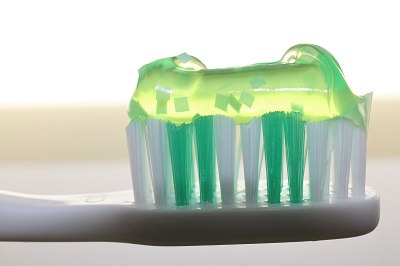What are causes and remedies for sensitive teeth?
It was a beautiful summer afternoon in mid-August in Vienna – the weather was neither too hot, nor too cold, the humidity level was just right, and there was a fresh breeze to boot. The only thing that was missing was a cold refreshing drink and I happened to have just the right thing waiting for me in my fridge: an ice-cold, light beer! However, after I took my first sip, I suddenly felt a searing pain that reached deep into my jaw bones. “Ouch – my teeth again.” I thought to myself. “This really can’t go on like this.” I muttered to myself while booking an appointment with my dentist online.On the very next day, I showed up at the dental practice and, after a thorough explanation and examination of my symptoms, I learned that I was suffering from sensitive teeth. Apparently, the same problem affects roughly 30% of the general population and most frequently occurs among people at ages between 20 and 40. Unfortunately for patients suffering from sensitive teeth, even the most mundane activities such as drinking hot or cold beverages or eating sweet or sour foods can cause pain. Even brushing teeth can be uncomfortable, which leads many to neglect their dental hygiene.
What causes sensitive teeth?
Knowing the problem was a good first step but I was much more interested in its causes. My dentist gladly served as my source of information and described the following potential reasons for sensitive teeth in great detail:- Retreating Gums – Often the result of aging, improper dental hygiene, or various inflammations of the enamel that expose a tooth’s dentin and lead to sensitive reactions to cold, hot, sweet, and sour foods and drinks.
- Dental Wear-Out – May lead to exposed dentin and is frequently the result of excessive brushing or the use of the wrong toothpaste/toothbrush
- Tooth Grinding – Often results in abrasions of the dental enamel which can expose the dentin and, thus, cause sensitivities
- Dental Erosion – Can cause sensitivity as the dental enamel is eroded by stomach acid or by acidic foods (e.g., white wine, citrus fruits, juices, etc.)
- Damaged Teeth and Fillings – Usually caused by biting on excessively hard foods, which can uncover the dental nerve and cause pain
- Tooth Decay (Caries) – If left untreated, tooth decay can uncover a tooth’s dentin and cause sensitive reactions
- Dental Procedures – Some treatments (e.g., bleaching, professional tooth cleaning) can cause temporary sensitivity
Apparently, a light inflammation of the gum line around two of my front teeth was the cause for the sensitive reaction that I was having. Quite annoying but definitely treatable.
What helps remedy sensitive teeth?
In the interim, my dentist recommended a whole slew of “Precautionary Measures” to protect sensitive teeth more effectively against potentially painful stimuli:- No (or significantly fewer) sour foods
- Always drink soft drinks and juices with straws
- Eat and/or drink at most 7 times per day to prevent “acid attacks”
- Rinse your mouth with a glass of water or milk after every meal
- Regularly chew sugar-free chewing gum to neutralize acids in your mouth
- Brush your teeth one hour after any given meal (not sooner)
- Use a soft toothbrush for your teeth and brush without excessive pressure
- Regularly change your toothbrush
- Use a mouthwash with high fluoride content
- Protect your teeth against stomach acid and treat any symptoms of heartburn, if necessary
- Brush your teeth with a special toothpaste with high fluoride content

If these conventional ways to alleviate pain remain fruitless and annoying sensitivity persists, my dentist mentioned the following additional clinical measures that could help:
- Night Guard – In cases of bruxism, a dentist can manufacture a professional occlusal splint for individual patients to prevent further tooth damage
- Fluoride Treatment – When exposed dentin causes discomfort, a dentist can apply a targeted fluoride layer to protect the affected tooth
- Invasive Treatments – To help exceptionally sensitive teeth, invasive treatments such as root canal procedures may be needed
Fortunately, the “Do It Yourself” options did the trick in my case and now I’m able to take hearty bites with a bright smile again.

Our best wishes to everyone who has had to deal with sensitive teeth in the past.
For more interesting stories, check out the DentalAce blog and join our online community by subscribing for free.


